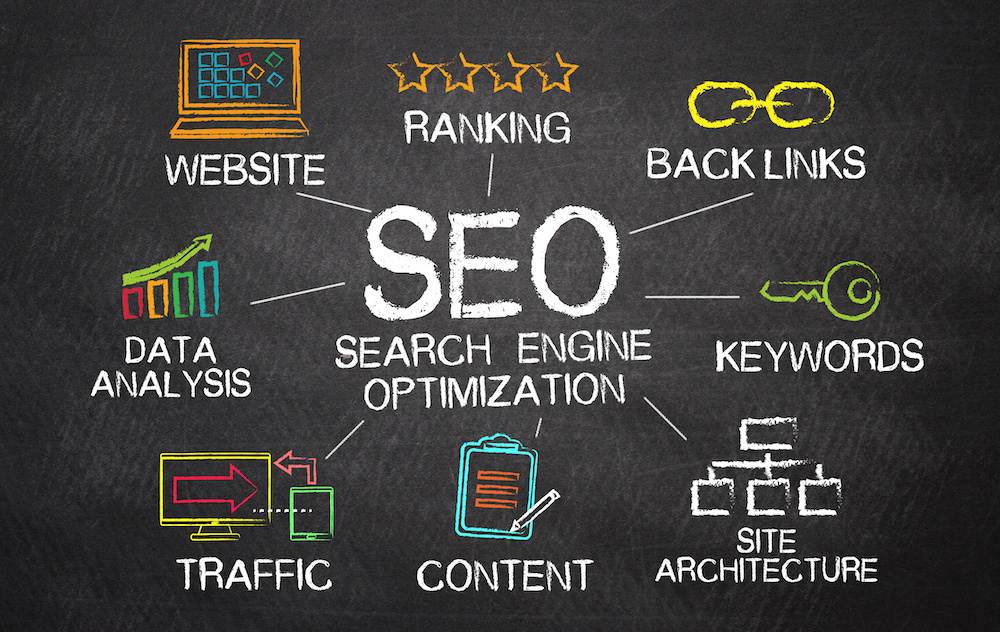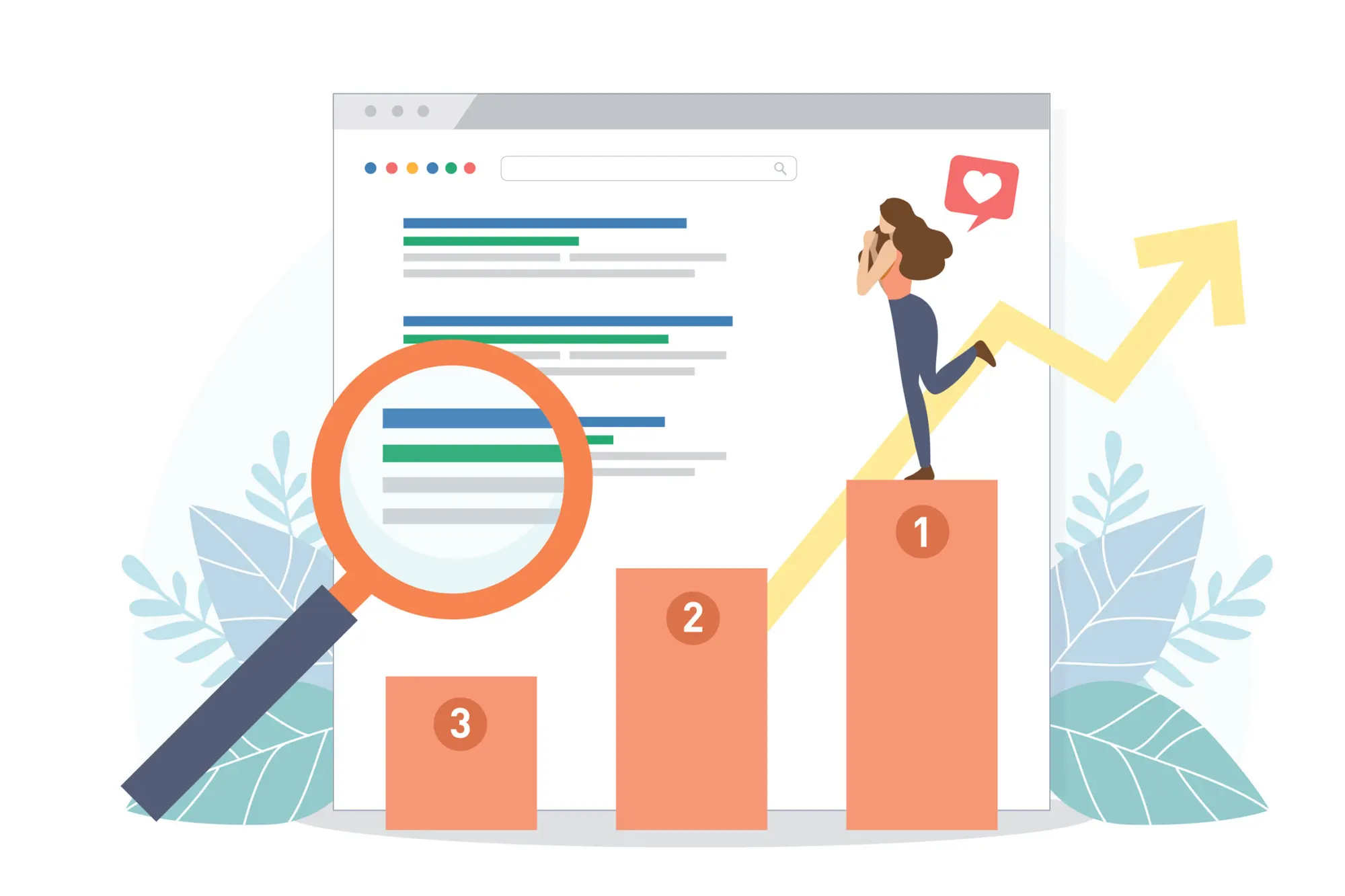Digital Marketing
The Ultimate Guide to SEO: What is SEO, How Search engine optimization can help your Business.

In “The Ultimate Guide to SEO: Boost Your Website Ranking in SERP with Digital Marketing Strategies,” I explore the intricate world of search engine optimization and provide valuable insights on how to enhance your website’s visibility on search engine results pages (SERPs). Through the implementation of effective digital marketing strategies, this comprehensive guide equips you with the knowledge and tools necessary to improve your website’s search engine rankings. Join me in this journey as we unravel the mysteries of SEO and pave the way for increased exposure in the online realm.
The Importance of SEO
Understanding SEO
Search Engine Optimization (SEO) is a fundamental aspect of digital marketing that focuses on increasing the visibility and ranking of a website in search engine results pages (SERPs). SEO is all about optimizing various elements of a website to ensure that it is easily discoverable by search engines and, in turn, by potential visitors.
Why SEO is crucial for your website
In today’s digital landscape, having a strong online presence is essential for any business or website. The majority of online experiences begin with a search engine, making SEO a crucial tool for attracting organic traffic. By implementing effective SEO strategies, you can improve your website’s visibility, increase brand awareness, attract qualified leads, and ultimately drive more conversions.
The benefits of SEO
Implementing SEO best practices offers a wide range of benefits for website owners. Firstly, it helps to enhance the user experience by ensuring that websites are easy to navigate, load quickly, and provide relevant and valuable content. Secondly, SEO improves a website’s credibility and authority by optimizing for relevant keywords and backlinks. This results in higher rankings in search engine results, establishing trust with users. Finally, SEO is a cost-effective approach compared to other digital marketing strategies, as it focuses on organic traffic rather than paid ads.
Key Components of SEO
Keywords and keyword research
Keywords are at the heart of SEO. They are the words or phrases that users type into search engines to find information, products, or services. Effective keyword research involves identifying relevant keywords that are highly searched by your target audience and have low competition. By strategically incorporating these keywords into your website’s content, meta tags, URLs, and headers, you can improve your chances of ranking higher in SERPs.
On-page optimization
On-page optimization refers to optimizing the elements and content on individual web pages to make them more search engine friendly. This includes optimizing title tags, meta descriptions, headers, subheadings, URLs, and image alt tags. On-page optimization also involves ensuring that the content is high-quality, relevant, and engaging to both search engines and users.

Off-page optimization
Off-page optimization involves activities that take place outside of your website, with the aim of improving its visibility and reputation. The most crucial aspect of off-page optimization is building high-quality backlinks from reputable websites. These backlinks act as “votes of confidence” and signal to search engines that your website is trustworthy and authoritative. Additionally, off-page optimization includes social media marketing and engagement, which helps to increase brand awareness and drive organic traffic.
Technical SEO
Technical SEO focuses on optimizing the technical aspects of a website to ensure that it is easily crawlable and indexable by search engines. It involves optimizing website loading speed, implementing mobile-friendly design, optimizing site architecture and XML sitemaps, and using schema markup. These technical optimizations help search engines understand your website’s content better and improve its visibility in SERPs.
Optimizing Website Content
Creating high-quality and engaging content
In the digital age, creating high-quality and engaging content is crucial for SEO success. High-quality content not only provides value to users but also helps search engines understand the purpose and relevance of your website. By consistently creating informative, well-researched, and unique content, you can attract and retain users, increase website traffic, and boost your search engine rankings.
Optimizing blog posts and articles
Blog posts and articles play a significant role in driving organic traffic to your website. To optimize these pieces of content, it is essential to conduct thorough keyword research and strategically incorporate relevant keywords throughout the text. Additionally, optimizing blog posts and articles includes structuring the content with headers, subheadings, bullet points, and other formatting techniques to make it scannable and user-friendly.
Incorporating keywords strategically
Strategic keyword integration is fundamental to successful SEO. By identifying and using relevant keywords in your content, meta tags, URLs, and headers, you increase your website’s visibility in search results related to those keywords. However, it is crucial to avoid keyword stuffing, as this can negatively impact your website’s credibility and user experience.
Using internal and external links effectively
Internal and external links play a vital role in SEO. Internal links connect different pages within your website, enabling search engines to discover and crawl your site more effectively. Additionally, internal links help users navigate your website and access relevant information. On the other hand, external links to reputable and authoritative websites can improve your website’s credibility and provide additional value to your audience. When using external links, it is crucial to ensure that they are relevant, reliable, and add value to your content.
Keyword Research
The significance of keyword research
Keyword research forms the foundation of any successful SEO strategy. By understanding the keywords that your target audience is using to search for products, services, or information in your industry, you can tailor your content and website optimization accordingly. Keyword research helps you identify the most valuable keywords to target, ensuring that your website appears in relevant search results.
Tools for conducting keyword research
There are several tools available to assist with keyword research. Platforms like Google Keyword Planner, SEMrush, and Moz Keyword Explorer can provide valuable insights into keyword volume, competition, and suggest related keywords. These tools help you identify high-value keywords that have a good balance of search volume and competition, allowing you to choose the most effective keywords for your content.
Analyzing keyword volume and competition
Keyword volume refers to the number of searches performed for a particular keyword within a given time frame. Analyzing keyword volume helps you understand the popularity and demand for specific keywords. On the other hand, keyword competition measures the difficulty of ranking for a particular keyword. Balancing keyword volume and competition is crucial to selecting keywords that offer a good chance of ranking well while targeting a significant number of potential visitors.
Long-tail keywords and their benefits
Long-tail keywords are longer and more specific keyword phrases that are typically less competitive than broader keywords. While they may have lower search volumes, long-tail keywords often indicate higher purchase intent and a more targeted audience. By incorporating long-tail keywords into your content, you can attract highly relevant traffic and increase the chances of conversion.
On-Page Optimization
Title tags and meta descriptions
Title tags are HTML elements that define the title of a web page, and meta descriptions provide a concise summary of a page’s content. Optimizing title tags and meta descriptions involves including relevant keywords while still creating compelling and click-worthy descriptions. Well-optimized title tags and meta descriptions improve click-through rates from search results and help search engines understand the content of your web pages.
Headers and subheadings
Headers and subheadings provide structure and readability to your content. By using appropriate header tags (H1, H2, H3), you can signal to search engines the importance and hierarchy of the content. Headers also break up your content, making it more scannable and user-friendly. In addition to incorporating relevant keywords, headers and subheadings should accurately reflect the content and provide a clear hierarchy.
URL structure
Optimizing URLs involves creating descriptive and user-friendly URLs that accurately reflect the content of the page. By including relevant keywords in the URL, you improve its visibility in search results. It is best practice to use hyphens to separate words in URLs, keeping them concise and meaningful. Clear and well-structured URLs not only benefit SEO but also help users understand the page’s topic before clicking.
Optimizing images and videos
Optimizing images and videos on your website involves various techniques to improve their visibility in search results. This includes giving images and videos descriptive file names, adding alt tags and captions, and compressing file sizes to optimize loading speed. Optimized images and videos enhance the user experience by making your website visually appealing and accessible to users of all abilities.
User-friendly navigation and site structure
A user-friendly navigation and site structure are crucial for both search engines and users. Clear navigation menus help search engines understand the hierarchy and organization of your website, allowing for easier crawlability and indexability. Additionally, user-friendly navigation ensures that users can easily find the information they are looking for, improving their overall experience and increasing the chances of conversion.
Off-Page Optimization

Building high-quality backlinks
Building high-quality backlinks from reputable and authoritative websites is a key aspect of off-page optimization. Backlinks act as endorsements from other websites, signaling to search engines that your website is trustworthy and relevant. To build such links, you can create high-quality content that naturally attracts links, reach out to relevant websites for guest blogging opportunities, or engage in influencer outreach to collaborate on content creation.
Social media marketing and engagement
Social media platforms play a significant role in off-page optimization. By actively engaging with your audience on social media and sharing valuable content, you can increase your brand’s visibility and drive traffic back to your website. Additionally, social media shares and engagements can indirectly contribute to your website’s SEO by increasing the likelihood of earning backlinks from other websites.
Influence of online reviews and reputation management
Online reviews and reputation management have a direct impact on a website’s visibility and credibility. Positive online reviews not only help build trust with potential customers but also signal to search engines that your business is reputable and authoritative. Additionally, managing your online reputation by promptly addressing negative reviews and feedback showcases your commitment to customer satisfaction and can positively impact your search engine rankings.
Guest blogging and influencer outreach
Guest blogging and influencer outreach can greatly amplify your website’s visibility and authority. By collaborating with industry influencers or contributing guest posts on reputable websites, you can reach a broader audience and establish your expertise in your niche. Guest blogging and influencer outreach allow you to earn high-quality backlinks and drive targeted traffic to your website, ultimately boosting your SEO efforts.
Technical SEO
Website loading speed and optimization
Website loading speed has a significant impact on both user experience and SEO. Slow-loading websites tend to have higher bounce rates, lower user engagement, and lower search engine rankings. Optimizing website loading speed involves various techniques, such as reducing file sizes, optimizing code, leveraging browser caching, and using content delivery networks (CDNs). By improving loading speed, you can enhance user satisfaction, reduce bounce rates, and improve your website’s visibility in search results.
This image is property of www.growthganik.com.
Mobile optimization
With the majority of internet users accessing websites through mobile devices, mobile optimization is crucial for SEO success. Responsive web design ensures that your website looks and performs well across various screen sizes and devices. Optimal mobile experiences contribute to better user engagement and longer session durations, which, in turn, improve search engine rankings.
Crawlability and indexability
Search engines use crawlers to discover and index web pages. Optimizing a website’s crawlability and indexability involves ensuring that search engine crawlers can easily access and understand your site’s content. This includes creating a well-structured site architecture, using internal linking effectively, and utilizing a sitemap that provides search engines with a roadmap of your website’s pages. By optimizing crawlability and indexability, you can improve your website’s visibility in search results.
Site architecture and XML sitemaps
A well-organized site architecture is crucial for SEO success. It involves structuring your website’s content and navigation in a logical and user-friendly manner. A clear and hierarchy-based site architecture improves both user experience and search engine crawlability. Additionally, utilizing XML sitemaps provides search engines with a comprehensive list of all your website’s URLs, ensuring that they can be discovered and indexed more efficiently.
Schema markup
Schema markup is code that you can add to your website to enhance the information displayed in search engine results. It helps search engines understand your content better and present it in a rich and informative manner. By implementing schema markup, you can provide context to your content, improve click-through rates, and enhance your website’s visibility in SERPs.
Local SEO
The importance of local SEO
Local SEO focuses on optimizing a website’s visibility for geographically targeted searches. It is particularly crucial for small businesses or those with physical locations. Local SEO helps businesses appear in local search results, Google Maps, and other directory listings. By optimizing for local search, you can increase your visibility to potential customers in your area and drive targeted traffic to your website.
Optimizing Google My Business
Google My Business (GMB) is an essential platform for local SEO. Optimizing your GMB profile involves claiming and verifying your business listing, ensuring that all information is accurate and up to date, and actively managing reviews and customer engagement. By optimizing your GMB profile, you can enhance your local search visibility and provide users with valuable information about your business.
Local directory listings and citations
Local directory listings and citations are crucial for local SEO. These directories, such as Yelp, Yellow Pages, and TripAdvisor, provide additional opportunities for potential customers to discover your business. Optimizing local directory listings involves ensuring consistent and accurate information across all directories and actively managing reviews and customer feedback.
Customer reviews and testimonials
Online customer reviews and testimonials have a significant influence on consumer behavior. Positive reviews not only build trust and credibility but also signal to search engines that your business is reputable. Encouraging satisfied customers to leave reviews and testimonials can improve your local SEO efforts, drive more traffic, and increase the likelihood of conversions.
Measuring and Tracking SEO Success
Understanding SEO metrics
Measuring and tracking SEO success involves analyzing various metrics to evaluate the effectiveness of your SEO efforts. Some key metrics include organic traffic, keyword rankings, bounce rate, pages per session, average session duration, conversion rate, and return on investment (ROI). By monitoring these metrics, you can identify areas for improvement, make data-driven decisions, and assess the overall performance of your SEO strategy.
Using Google Analytics
Google Analytics is a powerful tool for tracking and analyzing website traffic. It provides valuable insights into user behavior, organic search traffic, conversion rates, and other essential metrics. By utilizing Google Analytics, you can gain a deeper understanding of how users interact with your website, identify high-performing pages and keywords, and make data-driven optimizations to improve your SEO strategy.
Tracking keyword rankings
Monitoring keyword rankings is crucial for assessing the success of your SEO efforts. By tracking how your chosen keywords rank in search results over time, you can determine the effectiveness of your optimization strategies. Various tools, such as SEMrush or Moz, can provide accurate and up-to-date information on keyword rankings, allowing you to make informed decisions for further optimization.
Monitoring website traffic and user behavior
Monitoring website traffic and user behavior provides valuable insights into how users interact with your website and content. By analyzing metrics such as page views, time on page, and bounce rate, you can identify areas for improvement and optimize your content and user experience accordingly. Understanding user behavior helps you tailor your website to meet their needs, improve engagement, and increase conversion rates.
Staying Up to Date with SEO
Keeping up with algorithm updates
Search engine algorithms are constantly evolving, which means that SEO strategies must adapt accordingly. Staying up to date with algorithm updates helps you understand the changing ranking factors and adjust your optimization techniques. Following reputable industry sources, attending webinars and conferences, and regularly checking search engine guidelines are essential for staying informed about the latest SEO trends and best practices.
Following industry experts and news sources
Following industry experts and reputable news sources in the field of SEO provides valuable insights and knowledge. Experts and thought leaders often share valuable tips, case studies, and updates that can help you stay ahead of the curve. Regularly consuming industry-related content, such as blogs, podcasts, and forums, allows you to stay informed about the latest trends and strategies in SEO.
Engaging in ongoing SEO education
SEO is a dynamic field, and it is essential to continuously update your knowledge and skills. Engaging in ongoing SEO education, such as online courses, certifications, or workshops, helps you stay relevant and informed about the latest best practices. Ongoing education can also provide opportunities to network with peers, collaborate on projects, and gain valuable insights from industry professionals.
Also Read… High CPC Keywords for Google Adsense | High CPC Keywords List 2024
Also Read… ChatGPT API vs ChatGPT Plus difference?
Also Read… On Page and Offpage SEO
Also Read… what is the importance of off-page SEO?
Also Read… is Off Page SEO still effective for SEO ?
Also Read… How many Ranking factors does Google use?
Also Read… What is the most important Google ranking factor?
Also Read… What is Digital Marketing? Digital Marketing Guide.
Also Read… How SEO can Help your Business
Also Read… How SEO Helps your Businesses | SEO Techniques
Also Read… What Is Digital Marketing? The Importance and Types of Digital Marketing in 2024







